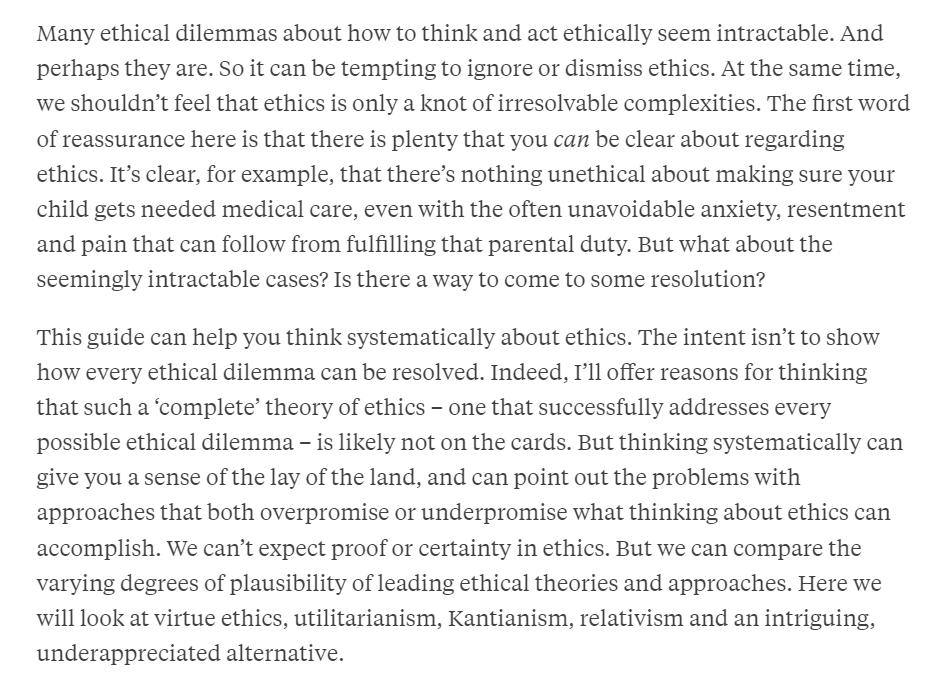Welcome to DU!
The truly grassroots left-of-center political community where regular people, not algorithms, drive the discussions and set the standards.
Join the community:
Create a free account
Support DU (and get rid of ads!):
Become a Star Member
Latest Breaking News
General Discussion
The DU Lounge
All Forums
Issue Forums
Culture Forums
Alliance Forums
Region Forums
Support Forums
Help & Search
Celerity
Celerity's Journal
Celerity's Journal
September 28, 2023
https://www.axios.com/local/nashville/2023/09/26/tennessee-group-consider-rejecting-federal-education-funding

Why it matters:
Tennessee would be the first state to turn down federal education funding. The new working group of 10 lawmakers could move that concept closer to reality. The group will consider the regulations and requirements that come along with the federal funding, and if the state could step in and fill that funding gap itself, according to a joint announcement from Sexton and Lt. Gov. Randy McNally (R-Oak Ridge).
What he's saying:
"Any time the federal government sends money, there are always strings attached to those dollars, and there is always a possibility that it opens the state up to other regulations or restrictions," Sexton said in a statement. "This working group will help provide a clearer picture of how much autonomy Tennessee truly has in educating our students."
The other side:
"Federal funds are crucial in supporting students with special needs, English language learners, and those from low-income families," state Sen. Raumesh Akbari (D-Memphis), who is one of the Democrats on the panel, said in a statement. "The harsh consequences of rejecting this $1.8 billion in funding cannot be overstated," she said. "Through this committee, I will advocate that Tennessee keep accepting these necessary funds."
Of note:
The group includes eight Republicans and two Democrats. They have not set a time for the first meeting.
snip
Tennessee Republican leaders form group to consider rejecting federal education funding
Tennessee's top Republican lawmakers are forming a group to consider rejecting federal education funding for the state's K-12 schools.https://www.axios.com/local/nashville/2023/09/26/tennessee-group-consider-rejecting-federal-education-funding
Flashback:
House Speaker Cameron Sexton (R-Crossville) proposed turning down $1.8 billion in federal money earlier this year.
House Speaker Cameron Sexton (R-Crossville) proposed turning down $1.8 billion in federal money earlier this year.

Why it matters:
Tennessee would be the first state to turn down federal education funding. The new working group of 10 lawmakers could move that concept closer to reality. The group will consider the regulations and requirements that come along with the federal funding, and if the state could step in and fill that funding gap itself, according to a joint announcement from Sexton and Lt. Gov. Randy McNally (R-Oak Ridge).
What he's saying:
"Any time the federal government sends money, there are always strings attached to those dollars, and there is always a possibility that it opens the state up to other regulations or restrictions," Sexton said in a statement. "This working group will help provide a clearer picture of how much autonomy Tennessee truly has in educating our students."
The other side:
"Federal funds are crucial in supporting students with special needs, English language learners, and those from low-income families," state Sen. Raumesh Akbari (D-Memphis), who is one of the Democrats on the panel, said in a statement. "The harsh consequences of rejecting this $1.8 billion in funding cannot be overstated," she said. "Through this committee, I will advocate that Tennessee keep accepting these necessary funds."
Of note:
The group includes eight Republicans and two Democrats. They have not set a time for the first meeting.
snip
September 27, 2023

https://prospect.org/politics/2023-09-27-end-government-shutdowns-forever/

A sign is posted on a barricade in front of the closed Lincoln Memorial in Washington, October 1, 2013, during a previous federal government shutdown.
As of Wednesday, there are just four days before the government shuts down, and it’s looking quite unlikely that it will be avoided. The main problem is the House Freedom Caucus, which has flatly refused to abide by the agreement struck between House Republicans and President Biden back during the debt ceiling negotiations, where Republicans extracted some modest budget cuts (too modest for the hard-liners) in return for not blowing up the global financial system. The Senate is reportedly preparing its own budget package to pressure Speaker of the House Kevin McCarthy to pass it with mostly Democratic votes, but there is little sign McCarthy will agree to that yet, because he’s afraid of crossing the hard-liners, who can then call for a vote to remove McCarthy from his job.
At time of writing, the Freedom Caucus can’t even agree on what hostage they want, though various proposals to slash vital government services (like cutting aid to low-income public schools by 80 percent) have been mooted. One gets the impression that they simply want a shutdown for its own sake—egged on by Donald Trump, who recently demanded, “UNLESS YOU GET EVERYTHING, SHUT IT DOWN!” in a post online. That includes stopping “the Weaponization of ‘Justice,’” which obviously refers to Trump’s various prosecutions for attempting to overthrow the government and other crimes. To onlookers, this is no doubt maddening.
First of all, there’s a solution that all but a small faction of one party in one chamber of Congress would agree to—so how isn’t that being done? And how is it possible that such a rich country can be governed like this? The truth is, most of them aren’t—and that includes the U.S. itself before 1980. It would be quite simple to return to the previous system. A government shutdown is not possible in other rich countries. As Rick Noack details at The Washington Post, in Westminster-style systems like the U.K. or Australia, if the government fails to pass a budget, then typically it must resign and new elections are triggered. Or in Germany, failure means the government budget runs on autopilot. Amusingly, Belgium also has a German-style system, and when it had no government at all for almost two years in 2010-2011, the autopilot budget was quite helpful because inaction meant avoiding much of the brutal austerity then being imposed across the continent.

So how do we fix the American system? We just have to return to procedures that were in place as recently as the 1970s. The legal question here centers on the 1870 Antideficiency Act. As Andrew Cohen writes at The Atlantic, back in the 19th century, presidents would commonly extort money out of Congress by signing contracts without having an explicit appropriation, and then daring legislators to break the government’s word. The Antideficiency Act forbade that kind of trickery. But it was less specific about what should happen if Congress simply failed to pass a budget at all (which likely didn’t even occur to them).
snip
There's an Easy Way to End Government Shutdowns Forever

https://prospect.org/politics/2023-09-27-end-government-shutdowns-forever/

A sign is posted on a barricade in front of the closed Lincoln Memorial in Washington, October 1, 2013, during a previous federal government shutdown.
As of Wednesday, there are just four days before the government shuts down, and it’s looking quite unlikely that it will be avoided. The main problem is the House Freedom Caucus, which has flatly refused to abide by the agreement struck between House Republicans and President Biden back during the debt ceiling negotiations, where Republicans extracted some modest budget cuts (too modest for the hard-liners) in return for not blowing up the global financial system. The Senate is reportedly preparing its own budget package to pressure Speaker of the House Kevin McCarthy to pass it with mostly Democratic votes, but there is little sign McCarthy will agree to that yet, because he’s afraid of crossing the hard-liners, who can then call for a vote to remove McCarthy from his job.
At time of writing, the Freedom Caucus can’t even agree on what hostage they want, though various proposals to slash vital government services (like cutting aid to low-income public schools by 80 percent) have been mooted. One gets the impression that they simply want a shutdown for its own sake—egged on by Donald Trump, who recently demanded, “UNLESS YOU GET EVERYTHING, SHUT IT DOWN!” in a post online. That includes stopping “the Weaponization of ‘Justice,’” which obviously refers to Trump’s various prosecutions for attempting to overthrow the government and other crimes. To onlookers, this is no doubt maddening.
First of all, there’s a solution that all but a small faction of one party in one chamber of Congress would agree to—so how isn’t that being done? And how is it possible that such a rich country can be governed like this? The truth is, most of them aren’t—and that includes the U.S. itself before 1980. It would be quite simple to return to the previous system. A government shutdown is not possible in other rich countries. As Rick Noack details at The Washington Post, in Westminster-style systems like the U.K. or Australia, if the government fails to pass a budget, then typically it must resign and new elections are triggered. Or in Germany, failure means the government budget runs on autopilot. Amusingly, Belgium also has a German-style system, and when it had no government at all for almost two years in 2010-2011, the autopilot budget was quite helpful because inaction meant avoiding much of the brutal austerity then being imposed across the continent.

So how do we fix the American system? We just have to return to procedures that were in place as recently as the 1970s. The legal question here centers on the 1870 Antideficiency Act. As Andrew Cohen writes at The Atlantic, back in the 19th century, presidents would commonly extort money out of Congress by signing contracts without having an explicit appropriation, and then daring legislators to break the government’s word. The Antideficiency Act forbade that kind of trickery. But it was less specific about what should happen if Congress simply failed to pass a budget at all (which likely didn’t even occur to them).
snip
September 27, 2023

https://www.thelocal.se/20230927/sweden-second-most-innovative-country-in-the-world

New figures from the Global Innovation Index show that Sweden is the world's second most innovative country, behind only Switzerland. "This provides hope for the future," Peter Strömbäck, director-general of the Swedish Intellectual Property Office, said. The index, carried out by the World IP Organisation, a UN organisation, puts Sweden ahead of countries like the US, Germany, Korea and China.
"This gives an image of how the country is performing," Strömbäck said. "Sweden is doing well with regards to creating knowledge assets, that is to say immaterial assets, and making use of them with the help of intellectual property rights, among other things."

Sweden invests heavily in research and aims to have high-quality universities, he explained, adding that a key reason for its success in innovation was the way it made use of the good ideas produced at these universities and turned them into concrete products or services."We're good at a lot of things related to energy and the green transition," he said.
One example of an area where Sweden is performing well is the IT sector, where Swedish innovations and companies are behind many developments in mobile phones. Another bright spot is its life science companies, which have produced important medical innovations on the back of which successful businesses have been built. Strömbäck believes there will be even more of a focus on energy and the green transition in the future. "If we didn't have this power of innovation I would be worried. How would we be able to meet the climate challenges? But I'm happy now," he said.
snip
Sweden ranked second most innovative country in the world, behind only Switzerland

https://www.thelocal.se/20230927/sweden-second-most-innovative-country-in-the-world

New figures from the Global Innovation Index show that Sweden is the world's second most innovative country, behind only Switzerland. "This provides hope for the future," Peter Strömbäck, director-general of the Swedish Intellectual Property Office, said. The index, carried out by the World IP Organisation, a UN organisation, puts Sweden ahead of countries like the US, Germany, Korea and China.
"This gives an image of how the country is performing," Strömbäck said. "Sweden is doing well with regards to creating knowledge assets, that is to say immaterial assets, and making use of them with the help of intellectual property rights, among other things."

Sweden invests heavily in research and aims to have high-quality universities, he explained, adding that a key reason for its success in innovation was the way it made use of the good ideas produced at these universities and turned them into concrete products or services."We're good at a lot of things related to energy and the green transition," he said.
One example of an area where Sweden is performing well is the IT sector, where Swedish innovations and companies are behind many developments in mobile phones. Another bright spot is its life science companies, which have produced important medical innovations on the back of which successful businesses have been built. Strömbäck believes there will be even more of a focus on energy and the green transition in the future. "If we didn't have this power of innovation I would be worried. How would we be able to meet the climate challenges? But I'm happy now," he said.
snip
September 27, 2023


https://www.vox.com/2024-elections/2023/9/27/23890683/second-republican-debate-gop-fake-rnc-trump

Tonight’s Republican primary debate is not a real event. It is a performance, a show, a pantomime: a shiny object with virtually no relevance to the outcome of the 2024 presidential primary. Donald Trump is solidly over 50 percent in the national polling averages, and no one else in the primary field has anything that looks like momentum. No opponent has been able to find a line of attack that could hurt him; many of them aren’t even trying. The great GOP establishment hope, that Trump’s legal problems might torpedo his campaign, was a mirage. If anything, the four indictments helped him in the primary.
At this point, the only things that could stop Trump are his death or incapacitation. Everyone in the political world — including the debate’s organizers and non-delusional rival candidates — is aware of this fact. Trump isn’t participating in the debates because he doesn’t need to: He would be lowering himself to share a stage with people who pretend to be rivals, but are really just the warm-up act for his coronation. That doesn’t mean the debate is entirely pointless. The other candidates get something out of being on that stage, like improving their future political prospects or satisfying a need for attention. And if you squint, you might get an actually interesting window into the policy debates that will define a post-Trump Republican Party.
But, of course, we are not yet even close to “post-Trump.” In presenting it as an actual presidential debate, rather than a discussion between somewhat prominent Republicans, the debate’s organizers are lying to you. With Trump absent, and facing no serious challengers, this is all make-believe politics — a ritual the party goes through to cover up the dark reality of what the party has become. The debate is fake. Donald Trump’s grip on the GOP is not.
What the “debate” really is
The case for taking the debate seriously amounts to seeing it as a kind of play-in competition: The candidates are duking it out for the right to become the One True Challenger to Donald Trump. To understand why this isn’t true, it’s worth charting the trajectory of the candidate who previously held that mantle: Florida Gov. Ron DeSantis. In mid-February, DeSantis was within striking distance, coming in roughly 2 percentage points below Trump in the FiveThirtyEight national poll average. But since then, his numbers have been on a downward trajectory. A disastrously run campaign, hampered by the candidate’s robotic and unlikeable personality, has tanked the primary electorate’s interest in the Florida governor.
snip
The Republican debates are fake, pointless spectacles


https://www.vox.com/2024-elections/2023/9/27/23890683/second-republican-debate-gop-fake-rnc-trump

Tonight’s Republican primary debate is not a real event. It is a performance, a show, a pantomime: a shiny object with virtually no relevance to the outcome of the 2024 presidential primary. Donald Trump is solidly over 50 percent in the national polling averages, and no one else in the primary field has anything that looks like momentum. No opponent has been able to find a line of attack that could hurt him; many of them aren’t even trying. The great GOP establishment hope, that Trump’s legal problems might torpedo his campaign, was a mirage. If anything, the four indictments helped him in the primary.
At this point, the only things that could stop Trump are his death or incapacitation. Everyone in the political world — including the debate’s organizers and non-delusional rival candidates — is aware of this fact. Trump isn’t participating in the debates because he doesn’t need to: He would be lowering himself to share a stage with people who pretend to be rivals, but are really just the warm-up act for his coronation. That doesn’t mean the debate is entirely pointless. The other candidates get something out of being on that stage, like improving their future political prospects or satisfying a need for attention. And if you squint, you might get an actually interesting window into the policy debates that will define a post-Trump Republican Party.
But, of course, we are not yet even close to “post-Trump.” In presenting it as an actual presidential debate, rather than a discussion between somewhat prominent Republicans, the debate’s organizers are lying to you. With Trump absent, and facing no serious challengers, this is all make-believe politics — a ritual the party goes through to cover up the dark reality of what the party has become. The debate is fake. Donald Trump’s grip on the GOP is not.
What the “debate” really is
The case for taking the debate seriously amounts to seeing it as a kind of play-in competition: The candidates are duking it out for the right to become the One True Challenger to Donald Trump. To understand why this isn’t true, it’s worth charting the trajectory of the candidate who previously held that mantle: Florida Gov. Ron DeSantis. In mid-February, DeSantis was within striking distance, coming in roughly 2 percentage points below Trump in the FiveThirtyEight national poll average. But since then, his numbers have been on a downward trajectory. A disastrously run campaign, hampered by the candidate’s robotic and unlikeable personality, has tanked the primary electorate’s interest in the Florida governor.
snip
September 27, 2023

Learning about ethical theories won’t give you easy answers, but will increase your confidence in how you choose to live
https://psyche.co/guides/how-to-think-about-ethics-with-help-from-aristotle-and-kant



snip
How to think about ethical dilemmas

Learning about ethical theories won’t give you easy answers, but will increase your confidence in how you choose to live
https://psyche.co/guides/how-to-think-about-ethics-with-help-from-aristotle-and-kant



snip
September 27, 2023


https://www.washingtonpost.com/opinions/2023/09/26/nato-turkey-sweden-us-fighter-jets/
https://archive.ph/2Iuds

Turkish strongman Recep Tayyip Erdogan relishes his country’s role as the North Atlantic Treaty Organization’s swing state, pivoting not between one faction and another within the Western alliance but between the alliance itself and its main antagonist, Russia. Hence his bartering and gamesmanship, designed to enhance his role as power broker — and extract concessions — even as he subverts his own NATO allies. He has confounded analysts’ confident predictions that he would lift Ankara’s block on Sweden joining the alliance following Turkey’s presidential election, which he won in May, or certainly no later than NATO’s annual summit, which was in July.
At that session, he pledged that Turkey would permit Sweden’s accession later this year. Two days later, he changed his tune, saying the Turkish parliament, where he holds sway, would need to sign off. Mr. Erdogan’s obstructionism is contagious. It has apparently emboldened another problem child in NATO, Hungary. Having previously promised to back Sweden’s accession, Hungarian Prime Minister Viktor Orban has threatened to impede it, irked at Stockholm’s criticism of his authoritarian ways. As is often the case, given Mr. Erdogan’s transactional approach to international politics, there is a concession to be wrung before he agrees to open NATO’s doors to Sweden. He wants to finalize a deal to acquire $20 billion of U.S.-made F-16 fighters, along with modernization kits for the country’s aging fleet.
President Biden has backed the F-16 sale but made it clear to Mr. Erdogan that Congress has to sign off. And Mr. Biden’s influence in Congress is more limited than Mr. Erdogan’s in Turkey’s parliament. Members of Congress, who know how Mr. Erdogan operates, want Turkey’s hold on Sweden’s NATO membership definitively lifted before they will approve the full F-16 deal. Many of them are reluctant for the good reason that Turkey’s backsliding on democratic norms has accelerated. After meeting with Mr. Biden this month at the Group of 20 summit with major industrial nations, Mr. Erdogan expressed dismay, apparently without irony, that Mr. Biden was tying the F-16 package to Sweden.
The standoff is a bouquet for Russian President Vladimir Putin, with whom Mr. Erdogan has proclaimed he has a “special relationship.” The Turkish leader would be wise to reassess where his interests lie — with his NATO allies, whose combined economic output is roughly 10 times greater than Russia’s, or with the warmongers in the Kremlin, struggling to keep their economy in gear against the weight of Western sanctions. The Western alliance would be significantly strengthened by Sweden’s entry, and Stockholm is understandably frustrated at the delay. It cast aside decades of formal neutrality to apply for NATO membership shortly after Russia’s full-scale invasion of Ukraine in February 2022. Mindful of Mr. Erdogan’s stated objections to its joining the alliance, Stockholm has addressed Ankara’s concerns that it has failed to move aggressively against Kurds living in Sweden, whom Turkey considered terrorists. To that end, it has extradited several Kurds as requested by Turkey, and also modified its laws and constitution to permit tougher dealings with alleged terrorists. Last year, Stockholm also scrapped its arms embargo on Turkey.
snip
WaPo Editorial Board: Erdogan overplays his hand on Sweden's NATO bid


https://www.washingtonpost.com/opinions/2023/09/26/nato-turkey-sweden-us-fighter-jets/
https://archive.ph/2Iuds

Turkish strongman Recep Tayyip Erdogan relishes his country’s role as the North Atlantic Treaty Organization’s swing state, pivoting not between one faction and another within the Western alliance but between the alliance itself and its main antagonist, Russia. Hence his bartering and gamesmanship, designed to enhance his role as power broker — and extract concessions — even as he subverts his own NATO allies. He has confounded analysts’ confident predictions that he would lift Ankara’s block on Sweden joining the alliance following Turkey’s presidential election, which he won in May, or certainly no later than NATO’s annual summit, which was in July.
At that session, he pledged that Turkey would permit Sweden’s accession later this year. Two days later, he changed his tune, saying the Turkish parliament, where he holds sway, would need to sign off. Mr. Erdogan’s obstructionism is contagious. It has apparently emboldened another problem child in NATO, Hungary. Having previously promised to back Sweden’s accession, Hungarian Prime Minister Viktor Orban has threatened to impede it, irked at Stockholm’s criticism of his authoritarian ways. As is often the case, given Mr. Erdogan’s transactional approach to international politics, there is a concession to be wrung before he agrees to open NATO’s doors to Sweden. He wants to finalize a deal to acquire $20 billion of U.S.-made F-16 fighters, along with modernization kits for the country’s aging fleet.
President Biden has backed the F-16 sale but made it clear to Mr. Erdogan that Congress has to sign off. And Mr. Biden’s influence in Congress is more limited than Mr. Erdogan’s in Turkey’s parliament. Members of Congress, who know how Mr. Erdogan operates, want Turkey’s hold on Sweden’s NATO membership definitively lifted before they will approve the full F-16 deal. Many of them are reluctant for the good reason that Turkey’s backsliding on democratic norms has accelerated. After meeting with Mr. Biden this month at the Group of 20 summit with major industrial nations, Mr. Erdogan expressed dismay, apparently without irony, that Mr. Biden was tying the F-16 package to Sweden.
The standoff is a bouquet for Russian President Vladimir Putin, with whom Mr. Erdogan has proclaimed he has a “special relationship.” The Turkish leader would be wise to reassess where his interests lie — with his NATO allies, whose combined economic output is roughly 10 times greater than Russia’s, or with the warmongers in the Kremlin, struggling to keep their economy in gear against the weight of Western sanctions. The Western alliance would be significantly strengthened by Sweden’s entry, and Stockholm is understandably frustrated at the delay. It cast aside decades of formal neutrality to apply for NATO membership shortly after Russia’s full-scale invasion of Ukraine in February 2022. Mindful of Mr. Erdogan’s stated objections to its joining the alliance, Stockholm has addressed Ankara’s concerns that it has failed to move aggressively against Kurds living in Sweden, whom Turkey considered terrorists. To that end, it has extradited several Kurds as requested by Turkey, and also modified its laws and constitution to permit tougher dealings with alleged terrorists. Last year, Stockholm also scrapped its arms embargo on Turkey.
snip
September 27, 2023

Somewhere Fred is screaming in rage
https://twitter.com/RadioFreeTom/status/1706827578940473597
September 27, 2023

https://theconversation.com/ukraine-war-mixed-signals-among-kyivs-allies-hint-at-growing-conflict-fatigue-213913

It is now almost 600 days since Russia launched its full-scale invasion of Ukraine, and the war that has followed has tested the resilience of both countries. But it has also tested those in the west that have supported Ukraine from the start. This much was evident from the mixed reception Ukraine’s president, Volodymyr Zelensky, received last week when he visited the US and Canada. Meanwhile, tensions in Europe over support for Ukraine have flared up again. With the Ukrainian counteroffensive still not living up to – the perhaps inflated – expectations, we are beginning to see the first serious signs of a fraying consensus in the west about how seriously different governments are committed to supporting Ukraine for as long as it takes.
Zelensky’s North American visit started with a speech at the UN general assembly in New York in which he made a passionate appeal to fellow world leaders to uphold international law and order and support his country. While there remains widespread backing for the principles of sovereign equality and territorial integrity, it gets fuzzier when it comes to how to end the war. There are two camps: many western leaders following Ukraine’s line that the country’s territorial integrity needs to be restored first. Others – including a large number of countries in the global south – prefer to emphasise the importance of dialogue and an early cessation of violence. This pattern was repeated the following morning at the UN security council’s open debate on the war in Ukraine, with a predictable clash between Zelensky and the Russian foreign minister, Sergey Lavrov, who presented very different accounts of causes and dynamics of the war.
But before the debate could conclude, the security council turned its attention to the crisis in Nagorno-Karabakh, a clear indication that Ukraine is not the only urgent issue on the global agenda. Zelensky continued to Washington DC where he secured another military aid package worth US$325 million (£192 million). This aid can be allocated by US president Joe Biden directly under the so-called presidential drawdown authority. A further US$24 billion in aid, which is subject to congressional approval, is more problematic. The Republican House majority leader, Kevin McCarthy, would not commit to putting a bill to that effect on the legislative schedule before the end of the year. McCarthy also denied the Ukrainian president an opportunity to address a joint session of the House and the Senate, another sign of growing Republican resistance to the enthusiastic support offered to Ukraine by the Biden administration. Moving up to Canada, Zelensky received a universally warm reception and left with a military aid package worth C$650 million (£394 million).
Europe: growing division
Meanwhile, in Europe, three of Kyiv’s neighbours inside the EU – Hungary, Poland and Slovakia – defied the end of an EU-wide ban on grain imports from Ukraine. Poland then went one step further and also put a – temporary – halt on any weapons deliveries to Ukraine. This was decried by Zelensky in his speech before the UN general assembly as “political theatre” and a gift for Moscow. The grain dispute between Poland and Ukraine has been simmering for some time, and it was a question of when, not if, it would ultimately escalate. Importantly, it foreshadows other potential obstacles in Ukraine’s path to EU membership. Some of these are potentially within Ukraine itself. As Ursula von der Leyen, the president of the European Commission, noted in her annual state-of-the-union address at the European parliament, “accession [to the EU] is merit-based”, she acknowledged “the great strides Ukraine has already made”. But accession negotiations will not be opened before a positive recommendation from the commission on Kyiv’s progress concerning seven conditions set in June 2022 when Ukraine was granted candidate status. This decision is expected before the end of 2023.
snip
Ukraine war: mixed signals among Kyiv's allies hint at growing conflict fatigue

https://theconversation.com/ukraine-war-mixed-signals-among-kyivs-allies-hint-at-growing-conflict-fatigue-213913

It is now almost 600 days since Russia launched its full-scale invasion of Ukraine, and the war that has followed has tested the resilience of both countries. But it has also tested those in the west that have supported Ukraine from the start. This much was evident from the mixed reception Ukraine’s president, Volodymyr Zelensky, received last week when he visited the US and Canada. Meanwhile, tensions in Europe over support for Ukraine have flared up again. With the Ukrainian counteroffensive still not living up to – the perhaps inflated – expectations, we are beginning to see the first serious signs of a fraying consensus in the west about how seriously different governments are committed to supporting Ukraine for as long as it takes.
Zelensky’s North American visit started with a speech at the UN general assembly in New York in which he made a passionate appeal to fellow world leaders to uphold international law and order and support his country. While there remains widespread backing for the principles of sovereign equality and territorial integrity, it gets fuzzier when it comes to how to end the war. There are two camps: many western leaders following Ukraine’s line that the country’s territorial integrity needs to be restored first. Others – including a large number of countries in the global south – prefer to emphasise the importance of dialogue and an early cessation of violence. This pattern was repeated the following morning at the UN security council’s open debate on the war in Ukraine, with a predictable clash between Zelensky and the Russian foreign minister, Sergey Lavrov, who presented very different accounts of causes and dynamics of the war.
But before the debate could conclude, the security council turned its attention to the crisis in Nagorno-Karabakh, a clear indication that Ukraine is not the only urgent issue on the global agenda. Zelensky continued to Washington DC where he secured another military aid package worth US$325 million (£192 million). This aid can be allocated by US president Joe Biden directly under the so-called presidential drawdown authority. A further US$24 billion in aid, which is subject to congressional approval, is more problematic. The Republican House majority leader, Kevin McCarthy, would not commit to putting a bill to that effect on the legislative schedule before the end of the year. McCarthy also denied the Ukrainian president an opportunity to address a joint session of the House and the Senate, another sign of growing Republican resistance to the enthusiastic support offered to Ukraine by the Biden administration. Moving up to Canada, Zelensky received a universally warm reception and left with a military aid package worth C$650 million (£394 million).
Europe: growing division
Meanwhile, in Europe, three of Kyiv’s neighbours inside the EU – Hungary, Poland and Slovakia – defied the end of an EU-wide ban on grain imports from Ukraine. Poland then went one step further and also put a – temporary – halt on any weapons deliveries to Ukraine. This was decried by Zelensky in his speech before the UN general assembly as “political theatre” and a gift for Moscow. The grain dispute between Poland and Ukraine has been simmering for some time, and it was a question of when, not if, it would ultimately escalate. Importantly, it foreshadows other potential obstacles in Ukraine’s path to EU membership. Some of these are potentially within Ukraine itself. As Ursula von der Leyen, the president of the European Commission, noted in her annual state-of-the-union address at the European parliament, “accession [to the EU] is merit-based”, she acknowledged “the great strides Ukraine has already made”. But accession negotiations will not be opened before a positive recommendation from the commission on Kyiv’s progress concerning seven conditions set in June 2022 when Ukraine was granted candidate status. This decision is expected before the end of 2023.
snip
September 27, 2023


https://www.washingtonpost.com/recipes/andouille-collard-greens-soup-cornmeal-dumplings/
https://archive.ph/HPzJX

Andouille sausage and smoked paprika fortify store-bought chicken stock for an intensely flavorful and smoky broth in which ribbons of collard greens are simmered until tender. Canned fire-roasted tomatoes add to the smokiness of the soup, and, combined with the andouille, bring a Creole flair to this soul food-inspired dish. Once the collard greens are tender, spoonfuls of cornmeal batter are nestled into the simmering broth and add a subtle sweetness to balance out the robust soup. If you’re unable to find andouille, you can substitute with another smoked sausage, such as kielbasa. Leftovers can be stored in the refrigerator for up to 3 days. Andouille sausage can be found at well stocked supermarkets, butcher or specialty shops, or online.






snip
Andouille and Collard Greens Soup With Cornmeal Dumplings


https://www.washingtonpost.com/recipes/andouille-collard-greens-soup-cornmeal-dumplings/
https://archive.ph/HPzJX

Andouille sausage and smoked paprika fortify store-bought chicken stock for an intensely flavorful and smoky broth in which ribbons of collard greens are simmered until tender. Canned fire-roasted tomatoes add to the smokiness of the soup, and, combined with the andouille, bring a Creole flair to this soul food-inspired dish. Once the collard greens are tender, spoonfuls of cornmeal batter are nestled into the simmering broth and add a subtle sweetness to balance out the robust soup. If you’re unable to find andouille, you can substitute with another smoked sausage, such as kielbasa. Leftovers can be stored in the refrigerator for up to 3 days. Andouille sausage can be found at well stocked supermarkets, butcher or specialty shops, or online.






snip
September 27, 2023

https://theconversation.com/professionals-in-sweden-are-pushing-back-hard-against-a-rightwing-plan-to-make-them-snitch-on-undocumented-migrants-213124

Workers in the welfare sector are currently giving Sweden’s government a significant headache in a dispute about upholding professional ethics. They are opposing a planned law that would require them to “snitch” on undocumented migrants. And since the successful implementation of the law would require their cooperation, the policy has reached something of an impasse. The political crisis centres on a proposal to force doctors, social workers, dentists, teachers and other welfare professionals to report undocumented patients, clients and students to the police. This is a demand many professionals, their unions and even employer associations argue is fundamentally antithetical to professional ethics and obligations to care for and serve all.
Experts in the fields of human rights and labour law have questioned the legality and reasoning behind the law, some comparing it to the kind of peer-surveillance that characterised the Soviet Union. Some doctors, teachers and social workers have pledged to resist and break the law if it is introduced. And, recently, thousands of people gathered in Stockholm and Gothenburg to protest on the matter. The proposal was introduced last year as part of the so-called Tidö agreement, a document outlining the basis of cooperation between the centre right to right wing government parties – the Liberals, the Moderates, the Christian Democrats and the radical right-wing Sweden Democrats. While the agreement covers several policy areas, migration and border control take centre stage. Four goals are outlined, aiming to bring about a “paradigm change” in asylum, immigration and integration policies.
The goals outlined in the agreement are similar to the British Home Office’s hostile environment policy introduced a decade ago. This consisted of a number of administrative and legislative measures designed to encourage or force people without residency permits to leave the country of their own accord. They might, for example, find it impossible to rent accommodation or register with a doctor. In a recent speech in parliament, prime minister Ulf Kristersson promised that Sweden’s intake of refugees will be kept at an “EU minimum”, implying the nation will meet its obligations but do no more than absolutely necessary. Last year, he claimed that immigration and “failed integration” of migrants are key drivers of Sweden’s economic and social problems.
The Tidö agreement reflects this narrative and promises to introduce a “requirement-based” integration policy, as opposed to a rights-based policy. Migrants will face tougher demands to learn Swedish and secure employment, but there may also be language testing for small children and aptitude tests to establish which migrants can remain in the country based on how well they have behaved. Migrants living in “exposed communities” – a term referring to areas characterised by “low socio-economic status” where “criminals impact local communities” – could expect to receive house calls from the authorities and to be stopped and searched on the street.
Pushing back.....................
snip
Professionals in Sweden: pushing back hard against a RW plan to make them snitch on the undocumented
https://theconversation.com/professionals-in-sweden-are-pushing-back-hard-against-a-rightwing-plan-to-make-them-snitch-on-undocumented-migrants-213124

Workers in the welfare sector are currently giving Sweden’s government a significant headache in a dispute about upholding professional ethics. They are opposing a planned law that would require them to “snitch” on undocumented migrants. And since the successful implementation of the law would require their cooperation, the policy has reached something of an impasse. The political crisis centres on a proposal to force doctors, social workers, dentists, teachers and other welfare professionals to report undocumented patients, clients and students to the police. This is a demand many professionals, their unions and even employer associations argue is fundamentally antithetical to professional ethics and obligations to care for and serve all.
Experts in the fields of human rights and labour law have questioned the legality and reasoning behind the law, some comparing it to the kind of peer-surveillance that characterised the Soviet Union. Some doctors, teachers and social workers have pledged to resist and break the law if it is introduced. And, recently, thousands of people gathered in Stockholm and Gothenburg to protest on the matter. The proposal was introduced last year as part of the so-called Tidö agreement, a document outlining the basis of cooperation between the centre right to right wing government parties – the Liberals, the Moderates, the Christian Democrats and the radical right-wing Sweden Democrats. While the agreement covers several policy areas, migration and border control take centre stage. Four goals are outlined, aiming to bring about a “paradigm change” in asylum, immigration and integration policies.
I am a teacher, not the border police


The goals outlined in the agreement are similar to the British Home Office’s hostile environment policy introduced a decade ago. This consisted of a number of administrative and legislative measures designed to encourage or force people without residency permits to leave the country of their own accord. They might, for example, find it impossible to rent accommodation or register with a doctor. In a recent speech in parliament, prime minister Ulf Kristersson promised that Sweden’s intake of refugees will be kept at an “EU minimum”, implying the nation will meet its obligations but do no more than absolutely necessary. Last year, he claimed that immigration and “failed integration” of migrants are key drivers of Sweden’s economic and social problems.
The Tidö agreement reflects this narrative and promises to introduce a “requirement-based” integration policy, as opposed to a rights-based policy. Migrants will face tougher demands to learn Swedish and secure employment, but there may also be language testing for small children and aptitude tests to establish which migrants can remain in the country based on how well they have behaved. Migrants living in “exposed communities” – a term referring to areas characterised by “low socio-economic status” where “criminals impact local communities” – could expect to receive house calls from the authorities and to be stopped and searched on the street.
Pushing back.....................
snip
I am a doctor, not the border police (officially from the Swedish Medical Association)


Profile Information
Gender: FemaleHometown: London
Home country: US/UK/Sweden
Current location: Stockholm, Sweden
Member since: Sun Jul 1, 2018, 07:25 PM
Number of posts: 43,349